美国学术出版社出版国家社科中华学术外译项目《孙中山传》
据全国哲学社会科学工作办公室消息(林采丽),国家社科基金中华学术外译立项项目《孙中山传》(A BIOGRAPHY OF SUN YAT-SEN)英语版(ISBN:9781631816789)近期由美国学术出版社American Academic Press在北美公开出版发行。
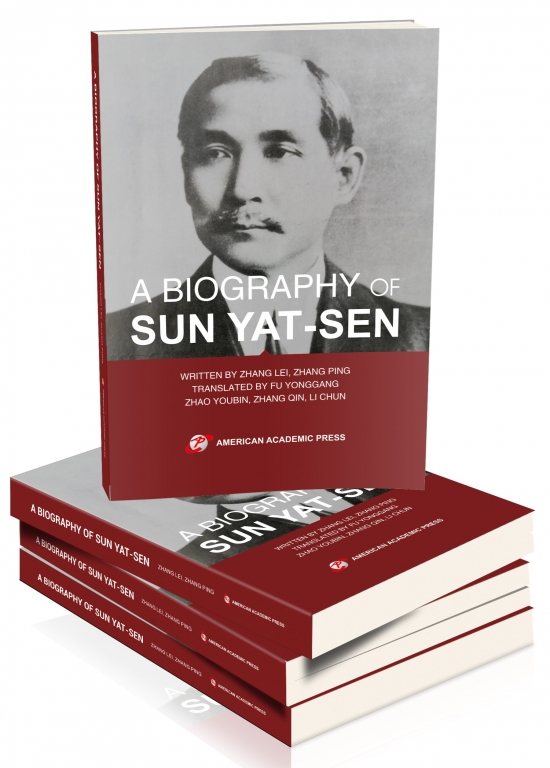
美国学术出版社出版国家社科基金中华学术外译项目《孙中山传》
《孙中山传》的作者张磊,1933年生于天津。历史学研究员。1950~1958年在北京大学历史系学习,本科及研究生毕业。1958年至今在广东省社会科学院工作,从事中国近代史研究工作,重点研究孙中山与辛亥革命。曾任广东省社会科学院院长、广东省社会科学联合会主席、中国史学会副会长等职,兼任中山大学、南京大学等院校教授、研究员。主要著述近三十种,另有论文百余篇。曾获得中国图书奖、广东特别学术成就奖等奖项。张苹,历史学副研究员。1988年~1992年就读于华南师范大学历史系。毕业至今在广州市社会科学院历史研究所工作。主要从事中国近代史及广州地方史研究。现任广东文史学会理事、广东史学会理事、《广州通史》编委会秘书长等职。独立主持和参与、省市级重大科研项目十余项。本书英语版由人民出版社授权美国学术出版社在北美出版发行。
该书目前由国外权威出版机构美国学术出版社(American Academic Press)正式出版发行。这是美国学术出版社继出版国家社科基金中华学术外译项目《中国方言与文化》(ISBN:9781631818844),《中国传统译论经典诠释——从道安到傅雷》(ISBN:9781631819148) ,《经济增长与结构演进:中国新时期以来的经验》(ISBN:9781631816161),《中国绘画思想史》(ISBN:9781631816512),《匈奴通史》(ISBN:9781631816727)《明代书坊与小说研究》(ISBN:9781631816567)以及教育部人文社会科学研究规划基金项目《中国经典古诗词精选100首英译》(ISBN:9781631819315),经典中国国际出版工程《郁达夫旧诗英译》(ISBN:9781631815133)等作品后的有一部力作。该书出版后,在美国、加拿大、墨西哥等国公开发行,谷歌,亚马逊等主流媒体均有销售。多年来,美国学术出版社一直是中国国家社会科学基金中华学术外译项目《国外出版机构指导性目录》中指定的美国出版社。中华学术外译项目是国家社科基金项目的主要类别之一,主要资助代表中国学术水准、体现中华文化精髓、反映中国学术前沿的学术精品以外文形式在国外权威出版机构出版、并进入国外主流发行传播渠道,旨在深化中外学术交流与对话,增进世界了解中国和中国学术,增强中国学术国际影响力和国际话语权,不断提升国家文化软实力。
《孙中山传》的译者为暨南大学翻译学院教授,硕士生导师付永钢老师。付永钢教授为中国语用学研究会会员;中国跨文化交际学会会员,发表高水平专业论文15余篇,出版著作和译作4部,主持国家和省市级项目6项。近期获得暨南大学“赛莱拉教育基金”科研突出贡献奖。翻译成员包括赵友斌教授、李春博士和张勤教授。
《孙中山传》以丰富的史料为基础,从满怀爱国与变革热忱的青少年写起,至孙中山去世,真实记录了孙中山的人生历程。作为纪念辛亥革命100周年的全国重点选题,《孙中山传》遵循的写作准则是:以马克思主义历史唯物主义为指导;采纳利于真实展示历史事件与人物的相关理论、方法论;广泛收集与使用各类资料;吸取新的研究成果:侧重思想研究。所以强调严谨的治学态度,是因为孙中山研究兼具学术价值和现实意义。今天,他依然是振兴中华和统一祖国的光辉旗帜。
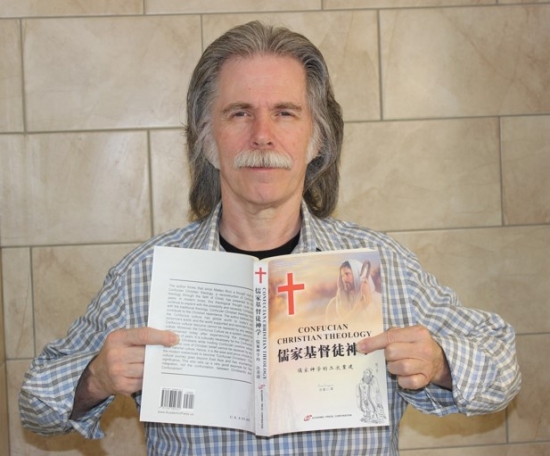
美国学术出版社出版的中文书籍
美国学术出版社(American Academic Press)是美国一所独立的学术性出版社,出版社出版反映自然科学、社会科学,具有学术价值的专著、专题论文、修改后的硕博士论文、原创性资料、教材以及小说、诗歌等文学作品。还出版多种学术性的专业期刊。美国学术出版社(American Academic Press)致力于出版国际学术界顶级作品和研究。除了主要出版用英语撰写的著作之外,还出版用中文、西班牙语、法语、西班牙语等语言撰写的具有很高学术价值的著作。美国学术出版社在美国犹他州、佛罗里达州、马萨诸塞州、加利福尼亚州、纽约州以及加拿大等地均有出版社工作点。美国学术出版社(American Academic Press)已经成为中华文化海外传播平台。根据全国哲学社会科学规划办公室和中国网的消息,国外权威出版机构美国学术出版社(American Academic Press)连续6年被国家社科基金列入国外出版机构指导目录。中国国家社会科学基金中华学术外译项目和美国学术出版社(American Academic Press)2014年到目前共合作27项项目。
附英文目录:
Contents
Introduction A Great Pioneer for the Democratic Revolution and a Forerunner of Modern China
Part 1 In Difficulties and Setbacks, the More Frustrated, the More Encouraged
An Overview Progressive and Hard Life of a Revolutionary
I. “Gradually, I Came to Realize that I Had to Change My Strategy from Peace to Violence”
II. Devoted but Powerless to Defend the Republic
III. Going with the Trend of the World and Meeting the Needs of the People
Chapter One A Young Man Aspired with Patriotism and the Spirit of Reform
I. Son of a Poor Peasant’s Family
II. From the Countryside to the Overseas World
III. Seeking a Way to Save the Country and the People
IV. First Setback in His Political Career: Going North to Submit His Petition to Li Hongzhang
Chapter Two Setting Foot on the Road of Democratic Revolution
I. Establishment of the Revive China Society: To Remove the Evil Government with Forceful Measures
II. Guangzhou Uprising in 1895: The First Step to a Republic in China
III. An Exile on Foreign Land: Hard Times in London and His Further Pursuit
IV. Inspiring Huizhou Uprising
V. Embracing the Dawn of the New Century
Chapter Three Striving for an Independent, Democratic and Prosperous Republic
I. Formulation of the Three Principles of the People, a Program for Democratic Revolution and Modernization
II. Establishment of the Chinese Revolutionary League
III. Ongoing Armed Struggle Against the Qing Dynasty
IV. Difficulties in Creating the Republican System
Chapter Four Difficulties in Defending the Republican System
I. From a Social Revolution to the Second Revolution
II. Founding of the Chinese Revolutionary Party and the Anti-Yuan Struggle
III. Two Movements of Defending the Republic: Unable to Save the Desperate Situation
IV. The More Frustrated, the More Encouraged
Chapter Five Known Also as a Thoroughgoing Revolutionary Movement
I. Keeping Up with the Times: The New Stage of the Three Principles of the People and the Three Great Policies
II. Joint Efforts of the Chinese Nationalist Party and the Communist Party of China for a United Front
III. Opening of the First National Convention of the Chinese Nationalist Party
IV. Surging Tide of the Great Revolution
V. Establishment of the Whampoa Army
VI. Recovering the Tariff Revenue Collected by the Guangdong Customs and Suppressing the Guangzhou Merchant Corps Rebellion
VII. Marching Northward: Keeping on Struggling till the Last Breath
Part 2 Sun Yat-sen’s Theories: A Theoretical Guideline for Constructing Modern China
Introduction Cultural Orientation of Sun Yat-sen’s Theories
I. Learning from European Theories and Opposing Total Subservience to Foreign Things and Blind Compliance
II. Carrying on the Fine Traditional Thoughts and Eliminating the Thousand-year Long “Despotic Poison”
III. “Creations Based on My Original Ideas”
Chapter Six Theories, Programs and Blueprints for Chinese Modernization
I. Premise for Modernization: Shake Off the Twin shackles of Colonialism and Feudalism
II. Industrialization: An Important Part of Modernization
III. Democratic Politics: A Lever to Advance Modernization
IV. Innovation and Progress of Science, Education and Culture: Necessary Conditions for Modernization
V. Reform and Opening Up: Themes of Modernization
Chapter Seven Nationalism
I. Nationalism in the Old Democratic Revolution
II. A New Stage of Nationalism
III. Some Important Issues Regarding Nationalism
Chapter Eight Democratism
I. Democratism in the Old Democratic Revolution
II. A New Stage in the Development of Democratism
III. Equality and Liberty
IV. Blueprint for the Form of Government
Chapter Nine Thoughts on the Principle of People’s Livelihood
I. Principle of People’s Livelihood in the Old Democratic Revolution
II. A New Stage in the Development of the Principle of People’s Livelihood
III. Several Important Points of the Principle of People’s Livelihood
Chapter Ten New Three Principles of the People and the Three Great Policies
I. Nationalism in the New Three Principles of the People
II. Democratism in the New Three Principles of the People
III. Principle of People’s Livelihood in the New Three Principles of the People
IV. Formulation of the Three Great Policies and Their Significance
Chapter Eleven Philosophical Foundation of the Three Principles of the People
I. Universal Notion of Evolution and Development
II. View of Nature Based on Modern Natural Sciences
III. Materialist Epistemology
IV. Socio-historical Viewpoint of People’s Livelihood
Main Events and Activities of Sun Yat-sen
References
免责声明:市场有风险,选择需谨慎!此文仅供参考,不作买卖依据。
标签:
-
 第七届上海国际诗歌节顺利闭幕 12月13日,第七届上海国际诗歌节顺利闭幕。当日上午,在T-art淘艺术空间举行了面向未来的诗歌——诗人与大学生恳谈交流会。下午,在静安区...
第七届上海国际诗歌节顺利闭幕 12月13日,第七届上海国际诗歌节顺利闭幕。当日上午,在T-art淘艺术空间举行了面向未来的诗歌——诗人与大学生恳谈交流会。下午,在静安区... -
 国内十大贵金属app交易平台排名2023 国际投资市场中黄金的买卖与交易是黄金投资市场中相当重要的一个组成部分,尤其是现货黄金,它已成为人们在黄金市场中的主要选择,也是国际
国内十大贵金属app交易平台排名2023 国际投资市场中黄金的买卖与交易是黄金投资市场中相当重要的一个组成部分,尤其是现货黄金,它已成为人们在黄金市场中的主要选择,也是国际 -
 让邻居都羡慕的装修是这样的 竹炭墙板、地板、家具板、门,因其特殊功能和自身环保性而被人们熟知,但是竹炭板材是市场上新型高科技材料,其装饰效果还有很多人不了解。
让邻居都羡慕的装修是这样的 竹炭墙板、地板、家具板、门,因其特殊功能和自身环保性而被人们熟知,但是竹炭板材是市场上新型高科技材料,其装饰效果还有很多人不了解。 -
 实时数据分析,亚略特边缘计算单元TrustBox赋能数字监管新模式建设 食品安全事关人民群众幸福生活,是民生工程、民心工程。运用信息化手段创新监管模式,江西省食品安全溯源平台(简称赣溯源)增强了食品安全
实时数据分析,亚略特边缘计算单元TrustBox赋能数字监管新模式建设 食品安全事关人民群众幸福生活,是民生工程、民心工程。运用信息化手段创新监管模式,江西省食品安全溯源平台(简称赣溯源)增强了食品安全 -
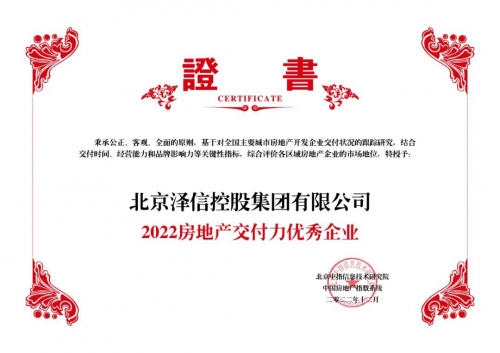 泽信控股集团:坚持长期主义,打造交付力品牌 以下文章来源于中指研究院 ,作者中指研究院由北京中指信息技术研究院主办,中国房地产指数系统、中国物业服务指数系统承办的2022中国房地
泽信控股集团:坚持长期主义,打造交付力品牌 以下文章来源于中指研究院 ,作者中指研究院由北京中指信息技术研究院主办,中国房地产指数系统、中国物业服务指数系统承办的2022中国房地 -
 丝瑞肤研引领再生医学头皮养护新概念 人生有一条必经之路,那就是走向衰老,无论一个人的社会地位有多高,积累了多么可观的财富,衰老总会如期而至。经科学研究表明,人体最薄的皮肤
丝瑞肤研引领再生医学头皮养护新概念 人生有一条必经之路,那就是走向衰老,无论一个人的社会地位有多高,积累了多么可观的财富,衰老总会如期而至。经科学研究表明,人体最薄的皮肤
-
 第七届上海国际诗歌节顺利闭幕 12月13日,第七届上海国际诗歌节顺利闭幕。当日上午,在T-art淘艺术空间举行了面向未来的诗歌——诗人与大学生恳谈交流会。下午,在静安区...
第七届上海国际诗歌节顺利闭幕 12月13日,第七届上海国际诗歌节顺利闭幕。当日上午,在T-art淘艺术空间举行了面向未来的诗歌——诗人与大学生恳谈交流会。下午,在静安区... -
 国内十大贵金属app交易平台排名2023 国际投资市场中黄金的买卖与交易是黄金投资市场中相当重要的一个组成部分,尤其是现货黄金,它已成为人们在黄金市场中的主要选择,也是国际
国内十大贵金属app交易平台排名2023 国际投资市场中黄金的买卖与交易是黄金投资市场中相当重要的一个组成部分,尤其是现货黄金,它已成为人们在黄金市场中的主要选择,也是国际 -
 这些绿色饲料可能会导致猪中毒?养猪户该如何解毒呢? 这些绿色饲料可能会导致猪中毒?养猪户该如何解毒呢?为了降低养殖成本让猪吃得更健康,都会在精饲料里添加一些纯天然的绿色饲料,然而...
这些绿色饲料可能会导致猪中毒?养猪户该如何解毒呢? 这些绿色饲料可能会导致猪中毒?养猪户该如何解毒呢?为了降低养殖成本让猪吃得更健康,都会在精饲料里添加一些纯天然的绿色饲料,然而... -
 环球观天下!淘宝直播创新内容直播间招募要求是什么? 淘宝直播启动创新内容直播间招募计划,颠覆传统导购式卖货形式,用全新的内容化方式演绎商品特点!那么淘宝直播创新内容直播间招募要求...
环球观天下!淘宝直播创新内容直播间招募要求是什么? 淘宝直播启动创新内容直播间招募计划,颠覆传统导购式卖货形式,用全新的内容化方式演绎商品特点!那么淘宝直播创新内容直播间招募要求... -
 让邻居都羡慕的装修是这样的 竹炭墙板、地板、家具板、门,因其特殊功能和自身环保性而被人们熟知,但是竹炭板材是市场上新型高科技材料,其装饰效果还有很多人不了解。
让邻居都羡慕的装修是这样的 竹炭墙板、地板、家具板、门,因其特殊功能和自身环保性而被人们熟知,但是竹炭板材是市场上新型高科技材料,其装饰效果还有很多人不了解。 -
 淘宝付费推广引流方法有哪些?附攻略 现在做电商的卖家越来越多,其中一个重要的原则对于电商来说非常重要,那就是进行引流推广。那么淘宝推广引流方法是什么?
淘宝付费推广引流方法有哪些?附攻略 现在做电商的卖家越来越多,其中一个重要的原则对于电商来说非常重要,那就是进行引流推广。那么淘宝推广引流方法是什么? -
 世界百事通!玉米霉变导致猪场中毒,该怎么治? 玉米霉变导致猪场中毒,该怎么治?玉米赤霉具有很强的毒性,不仅使母猪的繁殖机能严重受到影响,还会降低仔猪生长性能和猪免疫功能,已...
世界百事通!玉米霉变导致猪场中毒,该怎么治? 玉米霉变导致猪场中毒,该怎么治?玉米赤霉具有很强的毒性,不仅使母猪的繁殖机能严重受到影响,还会降低仔猪生长性能和猪免疫功能,已... -
 热推荐:鱼腥草喂猪能治哪些猪病 鱼腥草喂猪能治哪些猪病鱼腥草是一种最适合推广种植的绿色养猪饲料,它在三白草科植物中环境适应能力方面是非常强的,大部分地区在无霜...
热推荐:鱼腥草喂猪能治哪些猪病 鱼腥草喂猪能治哪些猪病鱼腥草是一种最适合推广种植的绿色养猪饲料,它在三白草科植物中环境适应能力方面是非常强的,大部分地区在无霜... -
 淘宝主播APP签到领流量怎么领? 为了帮助大家更好地进行开播,本次淘宝主播APP升级了每日签到功能,每周进行连续签到可以领取对应的流量券,用于后续的开播助力。请到应...
淘宝主播APP签到领流量怎么领? 为了帮助大家更好地进行开播,本次淘宝主播APP升级了每日签到功能,每周进行连续签到可以领取对应的流量券,用于后续的开播助力。请到应... -
 环球关注:猪场驱虫的方法和禁忌是什么? 猪场驱虫的方法和禁忌是什么?养猪过程中要做好驱虫工作,因为寄生虫尤其是蛔虫会使猪群感觉疾病,此外减慢猪的生长速度,严重影响养猪...
环球关注:猪场驱虫的方法和禁忌是什么? 猪场驱虫的方法和禁忌是什么?养猪过程中要做好驱虫工作,因为寄生虫尤其是蛔虫会使猪群感觉疾病,此外减慢猪的生长速度,严重影响养猪... -
 实时数据分析,亚略特边缘计算单元TrustBox赋能数字监管新模式建设 食品安全事关人民群众幸福生活,是民生工程、民心工程。运用信息化手段创新监管模式,江西省食品安全溯源平台(简称赣溯源)增强了食品安全
实时数据分析,亚略特边缘计算单元TrustBox赋能数字监管新模式建设 食品安全事关人民群众幸福生活,是民生工程、民心工程。运用信息化手段创新监管模式,江西省食品安全溯源平台(简称赣溯源)增强了食品安全 -
 每日速看!腾讯 QQ macOS 版 6.8.9 更新,支持全局搜索能力
IT之家12月13日消息,腾讯QQ今日面向Mac用户发布更新,带来了全新6 8 9版本,并登陆苹果MacAppStore。从更新内容来
每日速看!腾讯 QQ macOS 版 6.8.9 更新,支持全局搜索能力
IT之家12月13日消息,腾讯QQ今日面向Mac用户发布更新,带来了全新6 8 9版本,并登陆苹果MacAppStore。从更新内容来 -
 天天看点:宫崎英高:《装甲核心 6 境界天火》确认不是“类魂”游戏
IT之家12月13日消息,在TGA2022典礼上,宫崎英高、FromSoftware、万代南梦宫带来了《装甲核心》系列最新作《装甲核心6境界天
天天看点:宫崎英高:《装甲核心 6 境界天火》确认不是“类魂”游戏
IT之家12月13日消息,在TGA2022典礼上,宫崎英高、FromSoftware、万代南梦宫带来了《装甲核心》系列最新作《装甲核心6境界天 -
 猪不吃食全身发抖是怎么回事? 猪不吃食全身发抖是怎么回事?导致猪厌食发抖的原因有很多,要具体问题问题分析,根据不同的症状对症下药。一、猪发抖不吃食是什么原因...
猪不吃食全身发抖是怎么回事? 猪不吃食全身发抖是怎么回事?导致猪厌食发抖的原因有很多,要具体问题问题分析,根据不同的症状对症下药。一、猪发抖不吃食是什么原因... -
 山西当代书画名家·郝志远 郝志远,中国书法家协会会员,中国作家协会会员,山西省书法家协会第五届理事会理事,山西大众书画院副院长,山西省艺术研究创作中心研...
山西当代书画名家·郝志远 郝志远,中国书法家协会会员,中国作家协会会员,山西省书法家协会第五届理事会理事,山西大众书画院副院长,山西省艺术研究创作中心研... -
 88会员两张券可以叠加吗?全场通用吗? 现在很多小伙伴们在网上购物,如果经常在某个平台购物的话,大家会想要去开通这个平台的会员享受一些会员权益以及会员价格,88会员两...
88会员两张券可以叠加吗?全场通用吗? 现在很多小伙伴们在网上购物,如果经常在某个平台购物的话,大家会想要去开通这个平台的会员享受一些会员权益以及会员价格,88会员两... -
 泽信控股集团:坚持长期主义,打造交付力品牌 以下文章来源于中指研究院 ,作者中指研究院由北京中指信息技术研究院主办,中国房地产指数系统、中国物业服务指数系统承办的2022中国房地
泽信控股集团:坚持长期主义,打造交付力品牌 以下文章来源于中指研究院 ,作者中指研究院由北京中指信息技术研究院主办,中国房地产指数系统、中国物业服务指数系统承办的2022中国房地 -
 【天天报资讯】ROG 官宣 CES 2023 发布会,将推新一代笔记本
IT之家12月13日消息,ROG现已宣布将在拉斯维加斯时间1月3日上午10点,也就是北京时间1月4日凌晨2点举行CES20
【天天报资讯】ROG 官宣 CES 2023 发布会,将推新一代笔记本
IT之家12月13日消息,ROG现已宣布将在拉斯维加斯时间1月3日上午10点,也就是北京时间1月4日凌晨2点举行CES20 -
 每日简讯:宣传不停歇,守紧群众“钱袋子” 为有效遏制电信网络违法犯罪,延伸电信诈骗宣传触角,扩大宣传覆盖面,进一步增强辖区群众防范电信诈骗意识和能力,近日,内蒙古赤峰市...
每日简讯:宣传不停歇,守紧群众“钱袋子” 为有效遏制电信网络违法犯罪,延伸电信诈骗宣传触角,扩大宣传覆盖面,进一步增强辖区群众防范电信诈骗意识和能力,近日,内蒙古赤峰市... -
 盐城盐南高新区南新河社区开展“献血传爱心 ”活动 “我早就想献血了,就是没时间,今天看到献血车,就赶来献血了。”南新河社区居民王晔在献血车上一边伸出手指验血一边说。12月12日,江...
盐城盐南高新区南新河社区开展“献血传爱心 ”活动 “我早就想献血了,就是没时间,今天看到献血车,就赶来献血了。”南新河社区居民王晔在献血车上一边伸出手指验血一边说。12月12日,江... -
 丝瑞肤研引领再生医学头皮养护新概念 人生有一条必经之路,那就是走向衰老,无论一个人的社会地位有多高,积累了多么可观的财富,衰老总会如期而至。经科学研究表明,人体最薄的皮肤
丝瑞肤研引领再生医学头皮养护新概念 人生有一条必经之路,那就是走向衰老,无论一个人的社会地位有多高,积累了多么可观的财富,衰老总会如期而至。经科学研究表明,人体最薄的皮肤 -
 《最终幻想 1~6 像素复刻版》PS4 和 Switch 版通过评级
IT之家12月13日消息,SquareEnix此前在PC平台推出了《最终幻想1 2 3 4 5 6像素复刻版》,近日,ESRB评级显示P
《最终幻想 1~6 像素复刻版》PS4 和 Switch 版通过评级
IT之家12月13日消息,SquareEnix此前在PC平台推出了《最终幻想1 2 3 4 5 6像素复刻版》,近日,ESRB评级显示P -
 爱采购双12帮厂长直播带货,助力企业复产复工 2022年的双12已落下帷幕,C端头部电商平台热度不减。数字经济的力量,不仅在消费领域持续引爆,也在ToB企业服务领域不断释放着变革价值。在
爱采购双12帮厂长直播带货,助力企业复产复工 2022年的双12已落下帷幕,C端头部电商平台热度不减。数字经济的力量,不仅在消费领域持续引爆,也在ToB企业服务领域不断释放着变革价值。在 -
 南通金沙街道打造网格“三三工作法” 社会治理提质增效 江苏省南通市通州区金沙街道不断探索,以网格化治理为基础,以信息化建设为支撑,以精细化服务为抓手,通过打造网格“三三工作法”,着...
南通金沙街道打造网格“三三工作法” 社会治理提质增效 江苏省南通市通州区金沙街道不断探索,以网格化治理为基础,以信息化建设为支撑,以精细化服务为抓手,通过打造网格“三三工作法”,着... -
 热点!盐城盐都张庄街道:基层减负添活力 锚定目标干实事 今年以来,江苏省盐城市盐都区张庄街道积极贯彻上级部署要求,深入开展基层减负工作,力除形式主义,为基层干部松绑减负,鼓励基层走出...
热点!盐城盐都张庄街道:基层减负添活力 锚定目标干实事 今年以来,江苏省盐城市盐都区张庄街道积极贯彻上级部署要求,深入开展基层减负工作,力除形式主义,为基层干部松绑减负,鼓励基层走出... -
 全球聚焦:FF:将于 12 月 16 日宣布全球业务更新,及 FF 91 交付计划
IT之家12月13日消息,贾跃亭旗下FaradayFuture(简称FF)官网宣布,将于美国西部时间2022年12月15日(北京时间
全球聚焦:FF:将于 12 月 16 日宣布全球业务更新,及 FF 91 交付计划
IT之家12月13日消息,贾跃亭旗下FaradayFuture(简称FF)官网宣布,将于美国西部时间2022年12月15日(北京时间 -
 二月二吃什么食物 二月二的风俗有哪些 二月二龙抬头的起源? 二月二吃什么食物二月二吃饺子、春饼、炸油糕、面条、煎饼等。1、饺子:因为饺子的形状酷似耳朵,所以在二月二吃水饺,也叫做食龙耳。2、春
二月二吃什么食物 二月二的风俗有哪些 二月二龙抬头的起源? 二月二吃什么食物二月二吃饺子、春饼、炸油糕、面条、煎饼等。1、饺子:因为饺子的形状酷似耳朵,所以在二月二吃水饺,也叫做食龙耳。2、春 -
 撒拉族是什么民族 撒拉族是哪个国家来的 撒拉族是什么人种? 撒拉族是什么民族?撒拉族是中华民族中信仰伊斯兰教的少数民族之一,民族语言为撒拉语,属阿尔泰语系突厥语族西匈奴语支乌古斯语组,也有人
撒拉族是什么民族 撒拉族是哪个国家来的 撒拉族是什么人种? 撒拉族是什么民族?撒拉族是中华民族中信仰伊斯兰教的少数民族之一,民族语言为撒拉语,属阿尔泰语系突厥语族西匈奴语支乌古斯语组,也有人 -
 阳性人员家属要不要提前吃药 阳性人员摸过的东西会传染吗? 阳性人员家属要不要提前吃药应对新冠疫情感染可不可以预防性服用中药呢?专家表示,作为新冠感染者的密接,提前服用减半剂量的感冒药,有助
阳性人员家属要不要提前吃药 阳性人员摸过的东西会传染吗? 阳性人员家属要不要提前吃药应对新冠疫情感染可不可以预防性服用中药呢?专家表示,作为新冠感染者的密接,提前服用减半剂量的感冒药,有助 -
 世界观点:2023年天猫淘宝活动时间表大全 目前淘宝今年的双十一活动已经结束了,双十二也逐渐走向尾声,2023年即将到来,相信有很多小伙伴开始关注2023年淘宝有哪些满减活动等。那么
世界观点:2023年天猫淘宝活动时间表大全 目前淘宝今年的双十一活动已经结束了,双十二也逐渐走向尾声,2023年即将到来,相信有很多小伙伴开始关注2023年淘宝有哪些满减活动等。那么 -
 圣诞节是外国的春节吗 国外的新年是元旦还是圣诞? 圣诞节是外国的春节吗?圣诞节亦称耶稣圣诞节、主降生节,原本是耶稣基督诞辰纪念日,如今已成为欧美国家全民性的节日,也是欧美国家一年中
圣诞节是外国的春节吗 国外的新年是元旦还是圣诞? 圣诞节是外国的春节吗?圣诞节亦称耶稣圣诞节、主降生节,原本是耶稣基督诞辰纪念日,如今已成为欧美国家全民性的节日,也是欧美国家一年中 -
 涤字怎么读 涤多音字怎么读 涤的拼音是什么意思? 涤字怎么读?dí(涤)。本意是指洗净、清除。古义中一指养祭牲的房子,二指音乐的节奏急速。《仪礼-大射仪》和《礼记-曲礼》均有记载。
涤字怎么读 涤多音字怎么读 涤的拼音是什么意思? 涤字怎么读?dí(涤)。本意是指洗净、清除。古义中一指养祭牲的房子,二指音乐的节奏急速。《仪礼-大射仪》和《礼记-曲礼》均有记载。 -
 热点聚焦:比亚迪将在欧洲开设两家工厂 12月10日消息,中国汽车制造商比亚迪将于未来几个月在欧洲推出其首批电动汽车,并希望在欧洲大陆开设两家工厂。据彭博社报道,比亚迪正在关注
热点聚焦:比亚迪将在欧洲开设两家工厂 12月10日消息,中国汽车制造商比亚迪将于未来几个月在欧洲推出其首批电动汽车,并希望在欧洲大陆开设两家工厂。据彭博社报道,比亚迪正在关注 -
 环球即时:北京西城什刹海保护区一工业用地项目流拍,起始价1.92亿 12月12日,阿里资产拍卖平台披露,北京京城工业物流有限公司(简称“北京京城工业物流”)名下的西城区西海东沿甲1号房产流拍。据悉,该...
环球即时:北京西城什刹海保护区一工业用地项目流拍,起始价1.92亿 12月12日,阿里资产拍卖平台披露,北京京城工业物流有限公司(简称“北京京城工业物流”)名下的西城区西海东沿甲1号房产流拍。据悉,该... -
 三寸丁谷树皮是谁 武大郎为什么叫三寸丁谷树皮? 三寸丁谷树皮是谁?三寸丁谷树皮是《水浒传》中武大郎的绰号。《水浒传》,中国四大名著之一,以北宋末年宋江起义为主要故事背景,类型上属
三寸丁谷树皮是谁 武大郎为什么叫三寸丁谷树皮? 三寸丁谷树皮是谁?三寸丁谷树皮是《水浒传》中武大郎的绰号。《水浒传》,中国四大名著之一,以北宋末年宋江起义为主要故事背景,类型上属 -
 GPD WIN 4 掌机预售仍保留 32GB + 1TB 配置,GPD OS 公开测试
IT之家12月13日消息,GPDWIN4掌机将在12月底预售,官方此前宣布取消32GB+1TB的正式版配置。今日午间,GPD掌机官方宣布
GPD WIN 4 掌机预售仍保留 32GB + 1TB 配置,GPD OS 公开测试
IT之家12月13日消息,GPDWIN4掌机将在12月底预售,官方此前宣布取消32GB+1TB的正式版配置。今日午间,GPD掌机官方宣布 -
 天津一垃圾桶现弃婴被拾荒大爷翻出 弃婴违法吗? 天津一垃圾桶现弃婴 被拾荒大爷翻出12月11日,网传天津一大爷在捡废品时听到有婴儿的哭声,寻声而去发现一塑料袋,里面装着一名男婴。13日
天津一垃圾桶现弃婴被拾荒大爷翻出 弃婴违法吗? 天津一垃圾桶现弃婴 被拾荒大爷翻出12月11日,网传天津一大爷在捡废品时听到有婴儿的哭声,寻声而去发现一塑料袋,里面装着一名男婴。13日 -
 魅族手机防盗专利获授权,丢失后可黑屏锁卡槽
IT之家12月13日消息,珠海市魅族科技有限公司“电子设备防盗方法、装置及系统、电子设备及存储介质”专利近日获授权,专利内容称即使丢...
魅族手机防盗专利获授权,丢失后可黑屏锁卡槽
IT之家12月13日消息,珠海市魅族科技有限公司“电子设备防盗方法、装置及系统、电子设备及存储介质”专利近日获授权,专利内容称即使丢... -
 天天即时:2023年淘宝年货节是什么时候?有哪些满减活动? 临近年货节,很多人都非常激动,因为代表距离春节越来越近了。那么2023年货节什么时候开始?有什么优惠?下面给大家讲述一下。
天天即时:2023年淘宝年货节是什么时候?有哪些满减活动? 临近年货节,很多人都非常激动,因为代表距离春节越来越近了。那么2023年货节什么时候开始?有什么优惠?下面给大家讲述一下。 -
 紫砂杯怎么鉴别 紫砂杯怎么看是不是化工杯 怎么看紫砂杯好坏? 紫砂杯怎么鉴别?1、看颜色:真紫砂杯的颜色是暗淡的,还有沙粒感。假紫砂杯颜色是鲜亮、红亮的。2、检验紫砂杯的特殊的性能:将水滴在紫砂
紫砂杯怎么鉴别 紫砂杯怎么看是不是化工杯 怎么看紫砂杯好坏? 紫砂杯怎么鉴别?1、看颜色:真紫砂杯的颜色是暗淡的,还有沙粒感。假紫砂杯颜色是鲜亮、红亮的。2、检验紫砂杯的特殊的性能:将水滴在紫砂 -
 当前热文:历史痛感未敢忘,勠力同心谋复兴——写在第九个国家公祭日到来之际 12月13日,凄厉的警报声将再一次作为整个国家的背景音长鸣于耳畔,冬日的南京城,佩戴起紫金草的人们再次伫立街头,回首这座城市最惨痛...
当前热文:历史痛感未敢忘,勠力同心谋复兴——写在第九个国家公祭日到来之际 12月13日,凄厉的警报声将再一次作为整个国家的背景音长鸣于耳畔,冬日的南京城,佩戴起紫金草的人们再次伫立街头,回首这座城市最惨痛... -
 火星冬天温度多少度 人能在火星上生存几秒 火星上的水有毒吗? 火星冬天温度多少度?在火星两极的冬季极夜,温度低至-143℃。而在赤道的夏季白天,温度最高可达35℃。在晚上,温度会降至-73℃。火星比地球
火星冬天温度多少度 人能在火星上生存几秒 火星上的水有毒吗? 火星冬天温度多少度?在火星两极的冬季极夜,温度低至-143℃。而在赤道的夏季白天,温度最高可达35℃。在晚上,温度会降至-73℃。火星比地球 -
 天天热消息:淘宝举报中心被举报了会怎么样? 很多买家在淘宝上购物,但是对收到的产品满意程度不是很高,就会主动去申请退货退款。而且有些商家不希望去处理,可能会直接把买家的...
天天热消息:淘宝举报中心被举报了会怎么样? 很多买家在淘宝上购物,但是对收到的产品满意程度不是很高,就会主动去申请退货退款。而且有些商家不希望去处理,可能会直接把买家的... -
 多地争发消费券 如何引来“烟火气”? 点击图片查看视频人间烟火气,最抚凡人心,烟火气,映照火热生活;凡人心,律动新时代的脉搏,经济稳,人心稳;烟火旺,人气聚。
多地争发消费券 如何引来“烟火气”? 点击图片查看视频人间烟火气,最抚凡人心,烟火气,映照火热生活;凡人心,律动新时代的脉搏,经济稳,人心稳;烟火旺,人气聚。 -
 淘宝双旦活动和年货节哪个力度大?如何省钱? 经常网购的小伙伴们应该就知道,每次到了下半年的时候各大平台的活动都非常多,并且活动力度也是非常大的,除去双十一双十二,还有双...
淘宝双旦活动和年货节哪个力度大?如何省钱? 经常网购的小伙伴们应该就知道,每次到了下半年的时候各大平台的活动都非常多,并且活动力度也是非常大的,除去双十一双十二,还有双... -
 滴水穿石下一句是什么 水滴石穿的意思和启示是什么? 滴水穿石下一句是什么?滴水穿石下一句是万事功到自然成。水滴石穿指水滴不断地滴,可以滴穿石头;比喻坚持不懈,集细微的力量也能成就难能的
滴水穿石下一句是什么 水滴石穿的意思和启示是什么? 滴水穿石下一句是什么?滴水穿石下一句是万事功到自然成。水滴石穿指水滴不断地滴,可以滴穿石头;比喻坚持不懈,集细微的力量也能成就难能的 -
 当前简讯:福特将在英国投资1.5亿英镑 扩建其电动汽车工厂 12月13日消息,福特宣布将在其位于英国默西塞德郡的哈雷伍德工厂投入更多的资金,以大幅增加计划中的电动汽车驱动单元产量。去年10月,该公司
当前简讯:福特将在英国投资1.5亿英镑 扩建其电动汽车工厂 12月13日消息,福特宣布将在其位于英国默西塞德郡的哈雷伍德工厂投入更多的资金,以大幅增加计划中的电动汽车驱动单元产量。去年10月,该公司 -
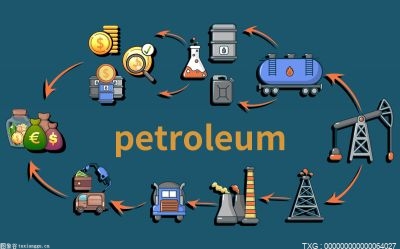 全球今热点:充分尊重家长及学生意愿 广州做好线上同步教学相关保障 央视网消息:从12月12日开始,广东广州高二、高三年级学生以自愿为原则返校开展线下教学,同步开展线上教学。随着优化防控措施落地后,广州市
全球今热点:充分尊重家长及学生意愿 广州做好线上同步教学相关保障 央视网消息:从12月12日开始,广东广州高二、高三年级学生以自愿为原则返校开展线下教学,同步开展线上教学。随着优化防控措施落地后,广州市 -
 视焦点讯!以国之名,悼我同胞! 今天(12月13日)第九个南京大屠杀死难者国家公祭日南京鸣响防空警报以国之名祭奠30余万遇难同胞勿忘历史,吾辈自强!点击图片查看视频。
视焦点讯!以国之名,悼我同胞! 今天(12月13日)第九个南京大屠杀死难者国家公祭日南京鸣响防空警报以国之名祭奠30余万遇难同胞勿忘历史,吾辈自强!点击图片查看视频。 -
 快资讯丨怒喵科技 AM 65 Less 键盘即将发布,用触控板代替方向键
IT之家12月13日消息,据怒喵科技官方消息,旗下65Less配列首款产品“AM65Less”将会在12月19日发布并开启先行团。据介
快资讯丨怒喵科技 AM 65 Less 键盘即将发布,用触控板代替方向键
IT之家12月13日消息,据怒喵科技官方消息,旗下65Less配列首款产品“AM65Less”将会在12月19日发布并开启先行团。据介
热门资讯
-
 外汇交易平台哪家正规?FXTM富拓打造好口碑 当下,国际局势风云变幻,投资市场...
外汇交易平台哪家正规?FXTM富拓打造好口碑 当下,国际局势风云变幻,投资市场... -
 久恒堂,重新定位中医健康标准,凸显企业发展速度 秉承中华中医,发展中医药事业2015...
久恒堂,重新定位中医健康标准,凸显企业发展速度 秉承中华中医,发展中医药事业2015... -
 新闻软文推广怎么做?做新闻软文推广的误区有哪些? 众所周知,新闻是每天都会在央视准...
新闻软文推广怎么做?做新闻软文推广的误区有哪些? 众所周知,新闻是每天都会在央视准... -
 十大贵金属交易平台app最新权威排名 在众多的国际理财产品中现货黄金具...
十大贵金属交易平台app最新权威排名 在众多的国际理财产品中现货黄金具...
观察
图片新闻
-
 视焦点讯!以国之名,悼我同胞! 今天(12月13日)第九个南京大屠杀...
视焦点讯!以国之名,悼我同胞! 今天(12月13日)第九个南京大屠杀... -
 当前热文:历史痛感未敢忘,勠力同心谋复兴——写在第九个国家公祭日到来之际 12月13日,凄厉的警报声将再一次作...
当前热文:历史痛感未敢忘,勠力同心谋复兴——写在第九个国家公祭日到来之际 12月13日,凄厉的警报声将再一次作... -
 多地争发消费券 如何引来“烟火气”? 点击图片查看视频人间烟火气,最抚...
多地争发消费券 如何引来“烟火气”? 点击图片查看视频人间烟火气,最抚... -
 每日速看!她忙得像一只“陀螺” 让自己和企业都“转起来” “我们的问题可能你没法解决,我不...
每日速看!她忙得像一只“陀螺” 让自己和企业都“转起来” “我们的问题可能你没法解决,我不...
精彩新闻
-
 今热点:E Ink元太科技宣布 Gallery 3 全彩电子纸量产
IT之家12月13日消息,据EInk元太科...
今热点:E Ink元太科技宣布 Gallery 3 全彩电子纸量产
IT之家12月13日消息,据EInk元太科... -
 快消息!江西共青城:为候鸟打造“自助餐厅” 随着冷空气的持续影响,大批候鸟由...
快消息!江西共青城:为候鸟打造“自助餐厅” 随着冷空气的持续影响,大批候鸟由... -
 估值600亿美元!“越南许家印”要去美国上市了 “越南许家印”要去美国上市了!当...
估值600亿美元!“越南许家印”要去美国上市了 “越南许家印”要去美国上市了!当... -
 透景生命总部基地落户上海 总投资4.26亿 透景生命12月12日公告,公司拟于上...
透景生命总部基地落户上海 总投资4.26亿 透景生命12月12日公告,公司拟于上... -
 环球简讯:中国疾控中心:我国现阶段流行毒株仍以BA.5亚分支为主 近日,网络流传一种名为BQ 1 1的...
环球简讯:中国疾控中心:我国现阶段流行毒株仍以BA.5亚分支为主 近日,网络流传一种名为BQ 1 1的... -
 微速讯:四部门联合发文:深入推进黄河流域工业绿色发展 12月12日,工信部、国家发改委、住...
微速讯:四部门联合发文:深入推进黄河流域工业绿色发展 12月12日,工信部、国家发改委、住... -
 全球快报:欧洲最快超算与量子计算机相连,为新型计算奠定基础
IT之家12月13日消息,据英国新科学...
全球快报:欧洲最快超算与量子计算机相连,为新型计算奠定基础
IT之家12月13日消息,据英国新科学... -
 环球热门:兰州市2022年下半年教师资格认定现场确认工作恢复 记者从兰州市教育局获悉,兰州市政...
环球热门:兰州市2022年下半年教师资格认定现场确认工作恢复 记者从兰州市教育局获悉,兰州市政... -
 虾吃虾涮携手北京卫视《暖暖的火锅》热浪来袭! 北京卫视《暖暖的火锅》是国内首档...
虾吃虾涮携手北京卫视《暖暖的火锅》热浪来袭! 北京卫视《暖暖的火锅》是国内首档... -
 睿控芯动力 重卡新高度 | 宇通重卡全场景极限挑战热血开战! 冬日的严寒掩藏不住奔放的热情,在...
睿控芯动力 重卡新高度 | 宇通重卡全场景极限挑战热血开战! 冬日的严寒掩藏不住奔放的热情,在... -
 淘宝店4钻和5钻的区别是什么?如何提高淘宝店铺等级? 每个淘宝店铺都有自己的等级,淘宝...
淘宝店4钻和5钻的区别是什么?如何提高淘宝店铺等级? 每个淘宝店铺都有自己的等级,淘宝... -
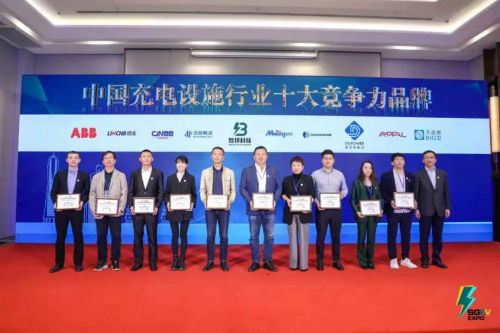 充电桩行业盛事,京能新能源荣获中国充电设施行业十大竞争力品牌 桩点世界——第二届充换电设施及配...
充电桩行业盛事,京能新能源荣获中国充电设施行业十大竞争力品牌 桩点世界——第二届充换电设施及配... -
 每日热文:淘宝店铺等级怎么划分?如何增加淘宝店铺等级? 每个淘宝店铺都有自己的等级,淘宝...
每日热文:淘宝店铺等级怎么划分?如何增加淘宝店铺等级? 每个淘宝店铺都有自己的等级,淘宝... -
 澳大利亚土著是什么人种 澳大利亚的人种主要是什么人种? 澳大利亚土著是什么人种?澳大利亚...
澳大利亚土著是什么人种 澳大利亚的人种主要是什么人种? 澳大利亚土著是什么人种?澳大利亚... -
 淘宝店铺等级提升的方法有哪些? 对于淘宝卖家来说,肯定也希望可...
淘宝店铺等级提升的方法有哪些? 对于淘宝卖家来说,肯定也希望可... -
 全球微动态丨新开淘宝店铺等级怎么提升?有方法吗? 淘宝店铺的等级都是非常看重的,...
全球微动态丨新开淘宝店铺等级怎么提升?有方法吗? 淘宝店铺的等级都是非常看重的,... -
 全球速递!淘宝商品怎么看有没有入池?淘宝商品如何入池? 淘宝商品如果能够入池,那么就有可...
全球速递!淘宝商品怎么看有没有入池?淘宝商品如何入池? 淘宝商品如果能够入池,那么就有可... -
 花菇的价格多少钱一斤 花菇好吃还是香菇好吃 花菇是什么? 花菇的价格多少钱一斤?新鲜花菇的...
花菇的价格多少钱一斤 花菇好吃还是香菇好吃 花菇是什么? 花菇的价格多少钱一斤?新鲜花菇的... -
 王者荣耀七周年携手网易LOFTER齐整活,游戏IP同人创作的流向改变了 一直以来,我觉得ACGN圈子里的同人...
王者荣耀七周年携手网易LOFTER齐整活,游戏IP同人创作的流向改变了 一直以来,我觉得ACGN圈子里的同人... -
 同一家庭阳性之间会造成重复感染吗 两个新冠阳性能住一起吗? 居家期间,阳性家庭成员之间可能互...
同一家庭阳性之间会造成重复感染吗 两个新冠阳性能住一起吗? 居家期间,阳性家庭成员之间可能互... -
 假期亲子游玩的好地方—HELLO CAT猫咪主题儿童乐园 孩子是国家的未来,是家长的所有希...
假期亲子游玩的好地方—HELLO CAT猫咪主题儿童乐园 孩子是国家的未来,是家长的所有希... -
 桑茶冲泡方法 桑茶如何正确冲泡呢 1、材料:新鲜桑叶4张,清水1000毫...
桑茶冲泡方法 桑茶如何正确冲泡呢 1、材料:新鲜桑叶4张,清水1000毫... -
 3年磨砺、1000+次调配!红小厨携手国宴大师,成就鲜炖佛跳墙开创者! 近日,专注御膳美食、鲜炖佛跳墙开...
3年磨砺、1000+次调配!红小厨携手国宴大师,成就鲜炖佛跳墙开创者! 近日,专注御膳美食、鲜炖佛跳墙开... -
 环球观天下!抖音自然流量一般多久推送完?流量多少算正常? 抖音用户发布短视频之后,抖音平台...
环球观天下!抖音自然流量一般多久推送完?流量多少算正常? 抖音用户发布短视频之后,抖音平台... -
 短视频内容定位需要考虑哪些方面的因素?附详细说明 做短视频最关键的就是要定位,定位...
短视频内容定位需要考虑哪些方面的因素?附详细说明 做短视频最关键的就是要定位,定位... -
 辽参多少钱一斤 大连野生海参和养殖海参的区别? 辽参多少钱一斤? 市面上辽参价格...
辽参多少钱一斤 大连野生海参和养殖海参的区别? 辽参多少钱一斤? 市面上辽参价格... -
 西二旗属于哪个区 西二旗属于几环 西二旗为什么出名? 西二旗属于哪个区?西二旗属于北京...
西二旗属于哪个区 西二旗属于几环 西二旗为什么出名? 西二旗属于哪个区?西二旗属于北京... -
 抖音拉黑和删除的区别是什么?有哪些功能? 现在抖音不断扩展,越来越多的小...
抖音拉黑和删除的区别是什么?有哪些功能? 现在抖音不断扩展,越来越多的小... -
 热推荐:抖音歌厅是怎么盈利的?抖音有哪些赚钱方法? 我们在抖音上除了刷视频以外,可以...
热推荐:抖音歌厅是怎么盈利的?抖音有哪些赚钱方法? 我们在抖音上除了刷视频以外,可以... -
 【天天聚看点】抖音月付人人都有额度吗?为什么用不了? 抖音现在也开通了月付功能,抖音...
【天天聚看点】抖音月付人人都有额度吗?为什么用不了? 抖音现在也开通了月付功能,抖音... -
 科摩罗是哪个国家 科摩罗是发达国家吗 科摩罗为什么叫月亮之国? 科摩罗是哪个国家?科摩罗是科摩罗...
科摩罗是哪个国家 科摩罗是发达国家吗 科摩罗为什么叫月亮之国? 科摩罗是哪个国家?科摩罗是科摩罗... -
 妄想的意思解释 妄想的意思和造句一览 痴心妄想的造句回事? 妄想的意思解释-?狂妄的打算;不能...
妄想的意思解释 妄想的意思和造句一览 痴心妄想的造句回事? 妄想的意思解释-?狂妄的打算;不能... -
 大规模核酸取消感染人数如何预估 老年人做核酸用的是什么码? 大规模核酸取消 感染人数如何预估...
大规模核酸取消感染人数如何预估 老年人做核酸用的是什么码? 大规模核酸取消 感染人数如何预估... -
 石蕊是什么 石蕊是一种什么物质 石蕊试剂的本质是什么? 石蕊是什么?1、石蕊(Litmus)的性状...
石蕊是什么 石蕊是一种什么物质 石蕊试剂的本质是什么? 石蕊是什么?1、石蕊(Litmus)的性状... -
 分数的基本性质是什么 最小公倍数怎么算 最小公倍数怎么找? 分数的基本性质是什么?1、分数的基...
分数的基本性质是什么 最小公倍数怎么算 最小公倍数怎么找? 分数的基本性质是什么?1、分数的基... -
 环球快讯:淘宝运营工作内容是什么?内容多吗? 在淘宝开店一个人经营一家店铺是...
环球快讯:淘宝运营工作内容是什么?内容多吗? 在淘宝开店一个人经营一家店铺是... -
 世界时讯:抖音内容策划怎么写?有哪些流程? 现在的抖音竞争非常的激烈,大家...
世界时讯:抖音内容策划怎么写?有哪些流程? 现在的抖音竞争非常的激烈,大家... -
 第七届中国商道文化论坛暨后疫情时期企业破局与发展峰会在深圳隆重举行 2022年12月12日,第七届中国商道文...
第七届中国商道文化论坛暨后疫情时期企业破局与发展峰会在深圳隆重举行 2022年12月12日,第七届中国商道文... -
 淘宝好货到村怎么取消?设置有什么好处? 当淘宝商品带有新品标签,那不是...
淘宝好货到村怎么取消?设置有什么好处? 当淘宝商品带有新品标签,那不是... -
 今日关注:淘宝店铺粉丝多少就比较好?怎么涨粉? 我们在淘宝网购后,觉得店铺的产...
今日关注:淘宝店铺粉丝多少就比较好?怎么涨粉? 我们在淘宝网购后,觉得店铺的产... -
 每日快播:小红书阅读量可以变现吗?如何变现? 如今的小红书虽然最开始是做内容...
每日快播:小红书阅读量可以变现吗?如何变现? 如今的小红书虽然最开始是做内容... -
 怎么查看淘宝搜索量?淘宝指数是什么? 淘宝索引是一个数据共享平台。通...
怎么查看淘宝搜索量?淘宝指数是什么? 淘宝索引是一个数据共享平台。通... -
 环球今日讯!京东商城的领券中心在哪里?怎么认领? 在京东上面购买商品的话,对于京...
环球今日讯!京东商城的领券中心在哪里?怎么认领? 在京东上面购买商品的话,对于京... -
 天天热讯:京东平台广告如何投放?投放渠道有哪些? 现在京东商家同行之间的竞争越来...
天天热讯:京东平台广告如何投放?投放渠道有哪些? 现在京东商家同行之间的竞争越来... -
 京东点点券入口在哪里?怎么领优惠券? 我们都会选择在京东买东西,可以...
京东点点券入口在哪里?怎么领优惠券? 我们都会选择在京东买东西,可以... -
 世界快资讯丨京东送货超时怎么赔偿?附操作步骤 京东平台中的效率是不错的,特别...
世界快资讯丨京东送货超时怎么赔偿?附操作步骤 京东平台中的效率是不错的,特别... -
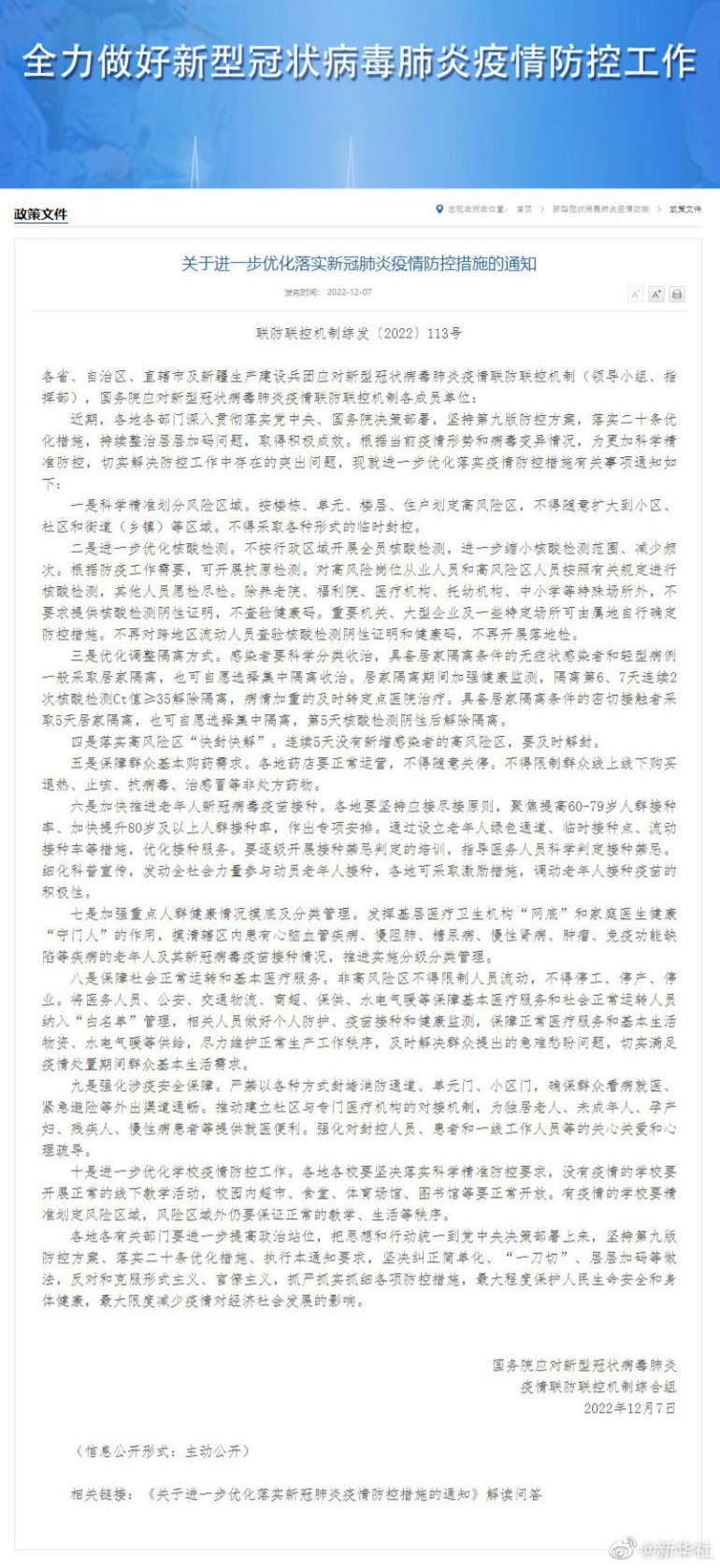 防疫减码,快克等感冒药销量大增,蝉联热卖榜TOP3! 自疫情防控新十条发布以来,全国各...
防疫减码,快克等感冒药销量大增,蝉联热卖榜TOP3! 自疫情防控新十条发布以来,全国各... -
 梦想银针:心有远方 梦想成真! 为了感谢所有家人一直以来的支持,...
梦想银针:心有远方 梦想成真! 为了感谢所有家人一直以来的支持,... -
 全网4.5亿级曝光,名门之秀五粮春再度掀起酒文化热度新高 对酒当歌,人生几何。在中国文化发...
全网4.5亿级曝光,名门之秀五粮春再度掀起酒文化热度新高 对酒当歌,人生几何。在中国文化发... -
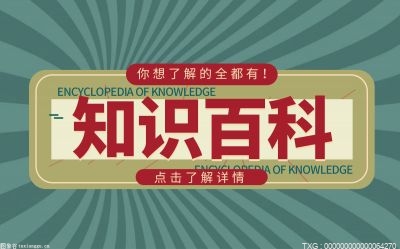 s45c是什么材料 s45c和45号钢有什么区别? s45c是什么材料?S45C是优质碳素结...
s45c是什么材料 s45c和45号钢有什么区别? s45c是什么材料?S45C是优质碳素结...